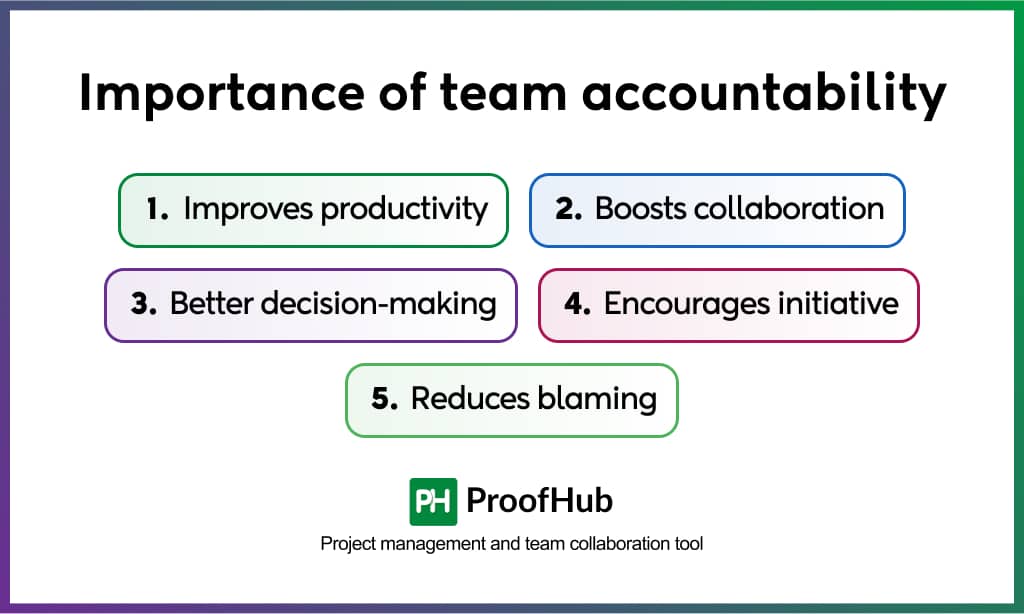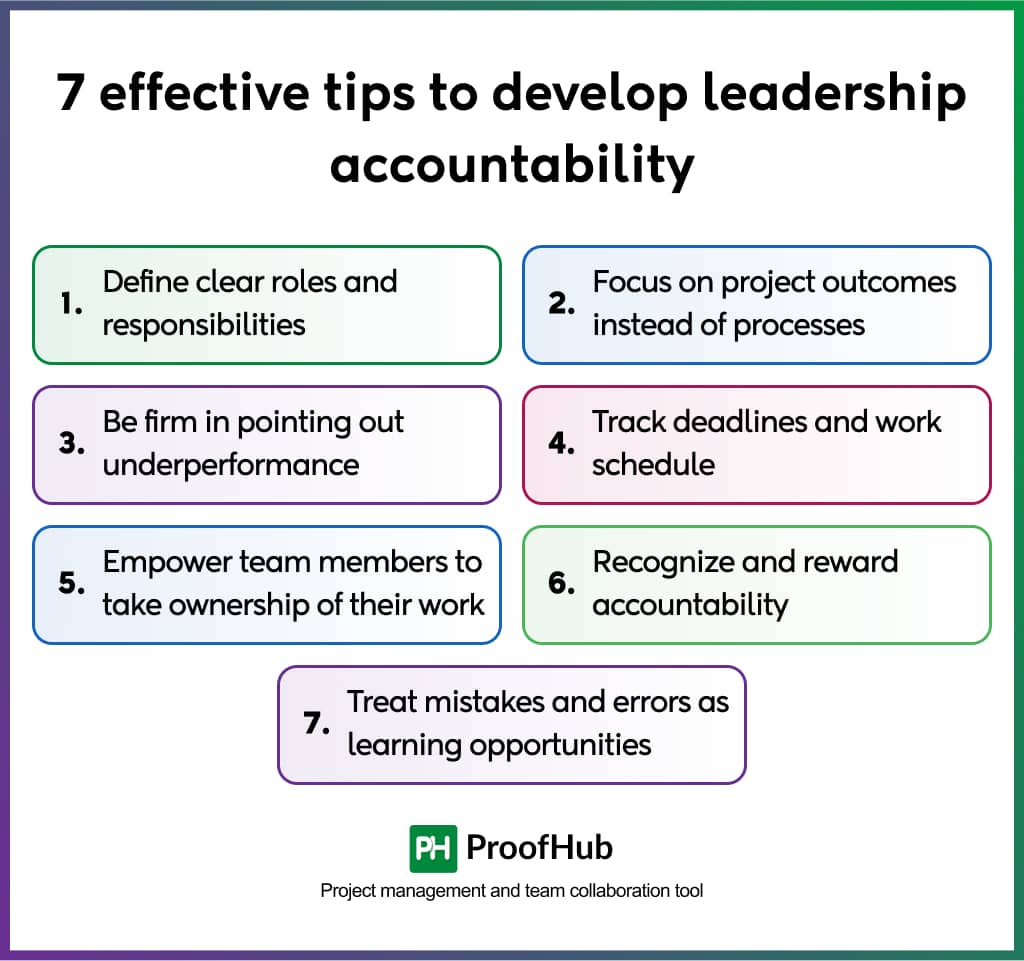“Micromanagement is the enemy of trust” – Ken Norton.
As a leader in my organization, I’ve seen how accountability can either strengthen a team or slowly weaken its morale.
When I was new to management, I made the classic mistake of getting over-involved in my team’s work. In a quest for everything to be perfect, I’d ask for updates multiple times a day, rewrite their reports, and even tweak the wording in emails before they finally ‘send’.
At one point, I assigned a team member a task and then spent the next few hours ‘helping’ them by offering suggestions every five minutes. Eventually, they signed and said, do you really want me to do this, or should I just watch you do it?
That moment made me realize that I was doing nothing but slowing them down. Even worse, they hesitated to take the initiative because they knew I would step in and make changes anyway.
Deadlines slipped, and frustration grew, but I couldn’t stop myself from making “just one more change.”
A team member is going to miss a deadline someday. The team is going to make mistakes. But if I want my team to take accountability for their work, I can’t be just the safety net that catches everything before it falls.
Naturally, the question arises: how to hold your team accountable without micromanaging?
The solution lies in finding the right balance where you delegate tasks to your team without suffocation, guide them without interference, and give them the freedom they need to succeed.
I’ll discuss some strategies to foster accountability without micromanagement. But first, let’s see what accountability in the workplace looks like.
What is accountability in the workplace?
Accountability empowers team members to perform tasks, meet deadlines, stick to company policies, and work towards long-term organizational goals.
While a micromanager criticizes team members, a positive leader urges them to take responsibility for their actions and learn from their mistakes and errors.
In a workplace that has a culture of accountability, team members don’t play the blame game. Instead, they share their achievements, successes, and failures—all as a team. The foundation of their team culture is built on trust, where every individual is accountable for himself.
Here is what one of the industry experts told me in a recent chat –
“I set clear expectations and hold people accountable, but I also get that life happens. It’s about balancing firm goals with genuine support—pushing for results while making sure people feel heard, valued, and motivated to do their best.” – Sandra Colhando, Co-Founder, TransforME.
Importance of team accountability
Based on a report by Predictive Index, 18% of CEOs find it hard to hold team members accountable. This can hinder the productivity levels of the team and the organization. If you don’t hold your team accountable, they won’t be motivated to achieve their goals.
A lack of accountability leads to micromanagement, which demotivates team members, causes errors, leads to poor communication, and creates an unhealthy environment.
This is why managers must avoid this and focus on accountability within their team. Next, let’s read about the importance of team accountability:

- Improves productivity and performance – Team members become goal-driven, focused, and efficient when accountable for their work. They start managing their deadlines and tasks without waiting for briefs and instructions. As a manager, you can focus more on strategic initiatives instead of chasing updates when your team starts owning up to their work.
- Boosts collaboration and trust – If you micromanage your team, they will not feel a sense of responsibility and will stop trusting you. Team accountability promotes transparency where every individual trusts not just management but each other as well. Naturally, the team performs as a cohesive unit, and the manager won’t need to interfere constantly.
- Better decision-making – When the team starts being accountable for their decisions, they start thinking critically, as their actions can have a big impact on the organization as a whole. The manager won’t need to constantly give approvals as team members evaluate risks and make decisions accordingly.
- Encourages initiative and ownership – Team members start taking initiative when they embrace accountability. Also, they always look for new ideas and improvements as they feel responsible for their organization. When the team start contributing themselves, managers don’t feel the need to offer them guidance at every step.
- Reduces blaming and conflict – Micromanagers always blame and point fingers at team members. The opposite is true for accountable teams, as individuals focus on problem-solving instead of blaming others. Managers can focus on growth as there are minimal workplace disputes and conflicts to resolve.
Stefanie Costi, Founder at The Rising Heard, is an advocate well-known for advocating for a safer future at work. I had an opportunity to speak to her and here’s her thoughts on accountability and its importance –
“Balancing accountability with empathy comes down to being transparent and setting clear expectations from the start. It’s about fostering an environment where people feel responsible for their work while also knowing they have support when they face challenges. I find that regular check-ins and open communication can help ensure that everyone feels accountable without feeling micromanaged. It’s important to listen, understand their struggles and offer guidance without taking over.”
Biggest challenge with holding team members accountable
For a successful leader, it is crucial to hold their team accountable.
Now, gathering everyone and celebrating when the team succeeds is easy. The hard part comes when it’s time to hold the team responsible for their mistakes and failures.
Based on the Workplace Accountability Study shows that more than 82% of managers have no or very little ability to hold their team members accountable. Also, over 90% of workers believe senior leadership needs to improve their ability to hold team members accountable.
The hard part isn’t defining accountability—it’s enforcing it without suffocating the team.
When I started my leadership journey, it was hard for me to find the right balance. If I stepped back, projects would stall and never be completed on time. When I followed up regularly, my team felt I was micromanaging and overly monitoring them.
So, the biggest challenge lies in getting the team to be accountable without feeling forced. The hard part is creating an environment where team members naturally take ownership of their work without being instructed by the manager.
What happens if no one is held accountable?
Even the most talented team will struggle if there is a lack of accountability.
Without clear ownership, individuals struggle as they don’t feel responsible for their tasks, which often leads to micromanagement. A manager is responsible for making sure that the team embraces accountability instead of fearing it.
In my very first leadership role, I assumed that the team would foster accountability without any reinforcement from my side. Very soon, things began falling apart, and I realized my mistake.
Here are some situations that arose when I didn’t hold anyone accountable –
- There was no task prioritization, deadlines started slipping, and projects were never done on time.
- The team started playing the blame game and pointing fingers instead of looking for solutions.
- It destroyed trust and team morale, affecting every individual’s performance.
- Team collaboration took a hit, which hampered the organization’s success.
Also read: How to build team accountability: challenges & tips
Common pitfalls of micromanagement
Hands-on management is good and allows managers to know where their team stands. However, it’s important to understand that there is a very intricate and thin line between accountability and micromanagement.
A manager always has good intentions—keeping projects on track, minimizing errors, and ensuring high quality. Still, too much interference in the team’s work can lead to micromanagement. Instead of ownership, this makes accountability feel more like surveillance.
Now, I’ll cover the common pitfalls of micromanagement and how it affects the team.
1. Affects team morale
When a manager constantly monitors and scrutinizes the team’s every little detail, it sends the team a clear message: ‘ I don’t trust you.’ Team members become disengaged and lose their sense of responsibility completely.
Instead of taking pride in their work, they only do the bare minimum to avoid criticism from leadership. Managers fail to inspire team members to be accountable and have to push them to do their work.
2. Reduces innovation and creativity
Team members curb their creativity and stop thinking outside the box when they know their manager will second-guess every decision and action. Instead of thinking of new ideas, they work just on risk aversion as they fear making errors.
Micromanagement ensures the team follows instructions but kills their knack for innovation and problem-solving. This creates a dependency on managers as team members don’t solve anything themselves and always come to the manager for approval.
3. Creates bottlenecks and hampers productivity
Micromanagers believe that they are ensuring productivity, but the opposite is what happens. The team gets frustrated when their every move is monitored, limiting their efficiency.
When every task needs the manager’s approval, it creates unwanted bottlenecks. Individuals wait for feedback instead of smoothly working on completing their tasks. Team productivity goes down, and the manager has to address it instead of focusing on high-impact strategies.
4. Causes burnout and stress
The fear of constant criticism creates an exhausting work environment. There is pressure to meet unrealistic expectations, which frustrates and stresses the team.
Managers also experience burnout when they have to oversee everything the team does. In the long run, it makes it harder to focus on work, hampering the organization’s success.
5. Leads to high employee turnover
Would you want to work at an organization where you don’t feel comfortable and can’t maintain work-life balance?
The answer will most likely be No.
Talented people never work in a toxic environment where they feel suffocated and undervalued by the leadership. They’ll feel that their skills and abilities are not trusted if there is a culture of micromanagement.
As a result, employee turnover rises, and individuals look for better opportunities. This increases the pressure on the remaining team members as well as managers. Also, this disrupts team cohesion, and the organization has to bear high hiring costs.
Hold your team accountable without micromanaging
We’ve gone through everything related to employee accountability and how it is crucial to refrain from micromanagement to ensure productivity.
Now, it’s time to move towards the actionable and practical side of things.
The following 7 strategies will help managers in holding their teams accountable without micromanaging them in any way.

1. Define clear roles and responsibilities
To set the foundation for accountability without micromanaging, clearly defining their roles and responsibilities to the team is important. Apart from their roles, you must also brief them about the organization’s long-term goals and objectives. When team members know what they are responsible for, it is easier for them to be accountable.
Being a senior leader, here are some measures I take to ensure this –
- Making sure each team member knows their specific duties, their authority to make decisions, and key success metrics.
- Clarifying how their role aligns with organizational objectives beyond their job descriptions.
- Using tools like RACI matrices to prevent overlapping of tasks and no confusion.
- Revisiting and refining goals for team members depending on evolving project priorities.
I had the opportunity to talk about team accountability with Frizel Francis from Pixpa recently. Here is what he said –
“Set clear expectations upfront! When issues arise, I address them directly but privately, focusing on solutions rather than blame. I believe in providing the resources and support my team needs to succeed while still holding them to high standards.”
2. Focus on project outcomes instead of processes
I made it a priority to focus more on the results that my team delivers instead of the work approach they take. Every person has a unique style of working—it’s the results that matter in the end.
Team members should be accountable for achieving results, not just for following the manager’s instructions. This ensures they don’t feel micromanaged and perform at their best.
- Define clear outcomes, deadlines, and success metrics but allow the team to execute flexibly.
- Offer guidance where required, but trust your team to take the best approach possible.
- Don’t track every single step of your team members. Conduct regular check-ins to track their progress and help remove any roadblocks.
- Ensure the team doesn’t just depend on rigid processes and workflows. Encourage them to be innovative and come up with problem-solving solutions themselves.
3. Be firm in pointing out underperformance
Most managers want to avoid micromanagement, but that doesn’t mean that you don’t point out subpar performance and errors made by the team.
Accountability isn’t about punishment but growth. By addressing underperformance professionally and consistently, you can foster responsibility among the team, where they self-correct themselves whenever possible.
- Don’t hover over the team. You can track their performance through pre-defined checkpoints.
- When a team member underperforms, use specific examples and data points to help them in a fair and firm manner.
- Instead of criticizing or calling out underperformance, approach the conversation as a problem-solving exercise.
- Conduct open-ended discussions with team members to learn about their obstacles and collaborate on finding solutions.
4. Track deadlines and work schedule
By tracking the team’s work schedule and looming deadlines, managers can keep accountability high without micromanaging.
Building a habit of time awareness and self-reporting among the team creates an accountable culture. Team members start meeting deadlines not because the manager has an eye on them but because they are responsible for their work schedule.
- Set clear deadlines with pre-agreed milestones instead of constantly hovering over the team.
- Ask the team to readily update their status and inform about potential delays early on.
- Instead of asking for status updates only, focus on the team’s problems and work on solving them.
Using a project management tool like ProofHub, team members and managers can get visibility into project progress without disturbing any workflow. Managers can assign tasks, set deadlines, and track progress from a single place.
It is perfect to ensure everyone on the team is on the same page and proactively working towards organizational goals.
5. Empower team members to take ownership of their work
Empower your team members to take ownership of their work without constant interference if you want to foster accountability among them.
They will take responsibility for results when they feel their manager trusts them. It will eliminate micromanagement, ensuring efficient employee engagement and performance.
- Set clear expectations and goals, but give the team autonomy on achieving targets.
- Don’t dictate or spoonfeed solutions; ask team members to make their own decisions.
- Offer the necessary support and resources, but don’t step in unless it’s necessary to do so.
- Push team members to be innovative in coming up with problem-solving solutions.
6. Recognize and reward accountability
If you start recognizing team members for their accountability, it will motivate them to take ownership of their work naturally.
Value and reward your team for accountability, and they will start seeing it as a path to growth instead of just a manager’s expectation. The need for micromanagement will go down, and the motivation among the team will go up.
- Other than generic praise, acknowledge your team when they take the initiative, solve challenges, and deliver positive results.
- Recognize efforts of accountable teammates during team meetings and discussions.
- Offer rewards like project autonomy, leadership opportunities, and professional development.
7. Treat mistakes and errors as learning opportunities
As a manager, when you start treating team members’ mistakes as learning opportunities for them, it promotes accountability without any fear-driven micromanagement.
Team members will start looking for innovative ways to correct their mistakes. They feel safe making decisions, leading to stronger accountability and continuous growth.
- When errors occur, don’t blame team members and focus on identifying the root cause.
- Push your team to share their takeaways from mistakes and what they learned from them.
- Conduct a postmortem of errors to analyze what went wrong and prevent them from happening again.
- Start leading by example. Don’t hesitate to admit your mistakes and normalize learning from them.
Conclusion
Accountability is undoubtedly the backbone of a high-performance team, but it doesn’t mean suffocating your team in the form of micromanagement.
The manager is responsible for creating a workplace environment where team members naturally take responsibility for their work. You must set clear expectations, promote learning over fear, and practice outcome-driven leadership.
When managers reward team members for their accountability, they don’t feel controlled and gain a sense of responsibility. They start respecting their deadlines, treating their mistakes as lessons, and feel empowered to perform.
Therefore, by implementing the strategies discussed in the above article, managers can build a motivated, self-sufficient, and accountable team without micromanagement.
Start trusting your team and they will start rising to the occasion.
Frequently asked questions
What is the difference between accountability and micromanaging?
Accountability includes establishing clear expectations, having faith in workers to take initiative, and holding them accountable for results. On the other hand, micromanagement is an overabundance of control; it involves constant observation, step-by-step instructions, and a refusal to grant liberty. Micromanagement stifles innovation, decreases morale, and breeds reliance, whereas accountability promotes trust, motivation, and growth. Effective leaders provide support, direction, and empowerment without any micromanagement.
Why is it important to hold a team accountable without micromanaging?
Innovation, trust, and productivity increase when a team is held accountable without being micromanaged. It ensures that workers feel empowered rather than controlled and take responsibility for their work. Accountability encourages responsibility and great performance, but micromanagement breeds disengagement and inefficiency. Managers who achieve this balance build a motivated, self-sufficient team that produces results without continual supervision.
What are the benefits of holding your team accountable?
Holding your team accountable drives productivity and fosters a culture of responsibility. Key benefits include:
- Increased Productivity: Team members stay focused and meet deadlines without constant supervision.
- Stronger Trust & Collaboration: Teams work cohesively, reducing conflicts and blame-shifting.
- Better Decision-Making: The team takes ownership, leading to proactive problem-solving.
- Greater Innovation: Accountability encourages independent thinking and creativity.
- Reduced Managerial Overload: Managers can focus on strategy instead of micromanaging tasks.

